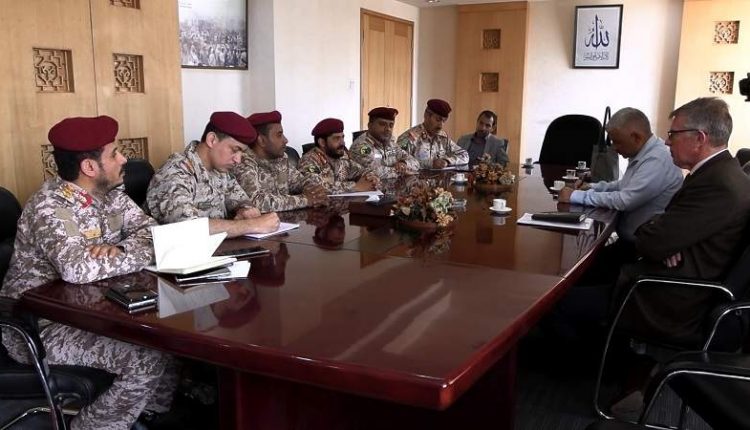Military Committee’s Head Demands Allow Entry of Demining Tools Obstructed by US-Saudi Aggression
The head of the Military Committee, Major General Yahya Abdullah Al-Razami, affirmed the Committee’s keenness to achieve everything that contributes to reaching the permanent and comprehensive peace that all Yemenis aspire to.
Major General Al-Razami called on those concerned in the United Nations to work to allow entry of the demining tools that have been obstructed by the aggression’s countries against Yemen for three years.
Back in April, the Prime Minister Abdul Aziz Saleh bin Habtoor confirmed that the US-Saudi aggression’s use of mines in its battle against Yemen exacerbated the size of this big problem facing the Yemeni People.
Bin Habtoor called on the United Nations and international humanitarian organizations to put more pressure on the countries involved in aggression to introduce mine detection devices that have been held for three years in Djibouti and donated by some organizations.
The US-Saudi aggression used cluster bombs, mines and many internationally banned weapons, which negatively affected the lives of residents in local communities. It led to the fall of victims in various Yemeni regions, and doubled the suffering at various levels.
Many areas in Yemen’s governorates have been bombarded by US-Saudi aggression with cluster bombs, while many of those internationally prohibited bombs are still scattered among farms and roads, and their victims are in the dozens.
The victims of cluster bombs have reached more than 25,000 civilians since the beginning of the US-Saudi aggression on Yemen.
The landmines and other remnants of the forces of aggression that they planted during their occupation, still pose a threat to the residents of many areas of the districts, especially farms and roads.
In official statistics, 2,500 cluster, destructive, phosphorous and piercing bomb raids targeted nine governorates in Yemen, foremost among which were US bombs like the CBU-87, British bombs like the BL755 and the Brazilian ASTROS II bombs.
Each of these weapons has its own properties and high impacts on humans and the environment, which remain life threatening for a long period of time. This shows the scale of the disaster that befell Yemen as a result of these US, British and other weapons.
The US-Saudi aggression refuses to enter equipment and devices to detect explosives in light of the silence of the United Nations, which bears the greatest responsibility for the continued casualties due to the remnants of the aggression, including mines and cluster bombs.

